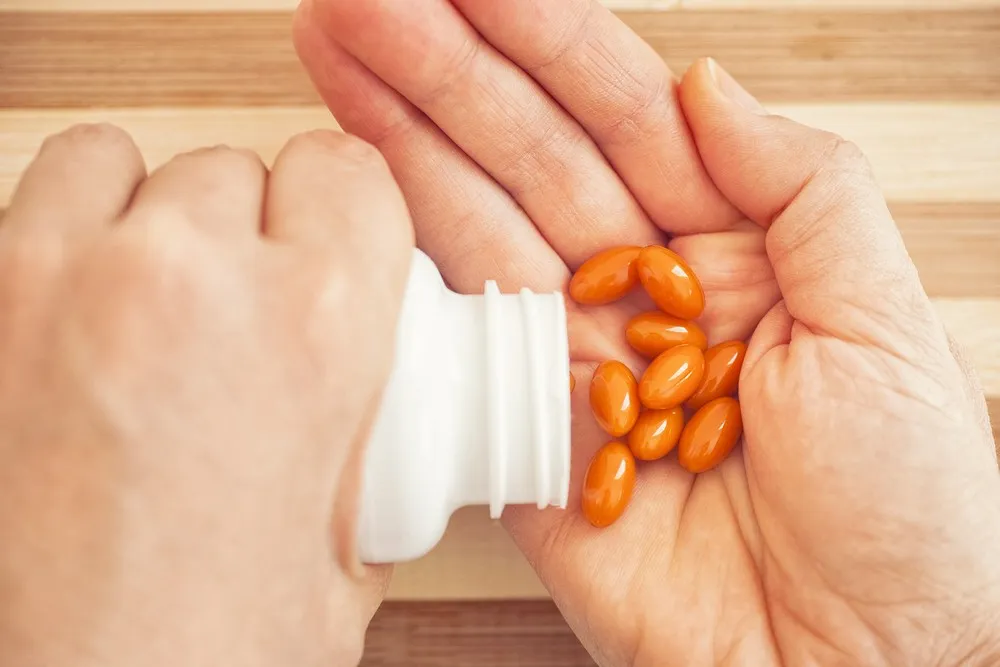Cardiac Surgeon Reveals the Top 3 Supplements for Heart Health

The American Heart Association (AHA) predicts that at least 60 percent of U.S. adults will be affected by cardiovascular disease—conditions including coronary heart disease, heart failure, heart arrhythmias, high blood pressure, stroke, vascular disease, and congenital heart defects—by the year 2050.
“The landscape of cardiovascular disease in the U.S. is seeing the arrival of a near-perfect storm,” said Dhruv S. Kazi, MD, vice chair of the AHA advisory writing group. “The last decade has seen a surge of cardiovascular risk factors such as uncontrolled high blood pressure, diabetes and obesity, each of which raises the risks of developing heart disease and stroke.”
Of course, the most obvious way to lower your risk of cardiovascular disease is to eat a healthy, balanced diet and exercise regularly. But cardiac surgeon Jeremy London, MD, says a few specific supplements are also great for heart health. Read on for his three recommendations.
1
CoQ10

First up on London’s list, which he shared in a recent TikTok video, is CoQ10, or Coenzyme Q10, a “powerful antioxidant.”
“But more importantly, it is a cofactor for the production of ATP, which is the energy currency of our cells,” he explains. “This improves the strength of the heart, as well as the overall efficiency of the heart function.”
Backing up London’s point is a 2022 meta-analysis published by the Journal of the American College of Cardiology.
As Best Life previously reported, the researchers reviewed nearly 900 randomized controlled trials to analyze the connection between micronutrients and heart disease risk. They concluded that three supplements reduced cardiovascular and diabetes risk, including CoQ10.
2
Omega-3s

Omega-3s, found in fish oil supplements, were also included in the 2022 study, and the AHA has recommended this for heart health for over 20 years.
“This is a power anti-inflammatory that can help control your lipid level and your overall cholesterol panel,” London notes. “In addition, it can assist in maintaining a healthy blood pressure.”
To get this nutrient from your diet, Cleveland Clinic explains that the two most essential forms of omega-3s your body needs are EPA (eicosapentaenoic acid) and DHA (docosahexaenoic acid), both of which are found in fish like salmon, mackerel, sardines, and herring.
ALA (alpha-linolenic acid) is the form of omega-3 found in plants like chia seeds, flaxseed, walnuts, and edamame. However, a smaller amount of ALA converts to EPA and DHA in your body.
3
Magnesium

Finally, London recommends magnesium for heart health.
“Interestingly, this is the most common electrolyte deficiency that we see,” he shares. “Magnesium helps control heart rate and heart rhythm, and because magnesium relaxes smooth muscle cells, it can help maintain a healthy blood pressure as well.”
Again, science supports London’s advice. A 2018 study published in the journal Nutrients found that magnesium was associated with a lower risk of heart disease.
Researchers attributed this to the “improved glucose and insulin metabolism and antihypertensive and anti-inflammatory properties” of the supplement, as Best Life previously wrote.
Some supplements should be avoided.

Before taking any new supplement, always speak with your healthcare provider. For example, CoQ10 supplements can interact with anticoagulant medications like Coumadin.
However, there are some supplements touted for their heart health benefits that are known to be risky.
Doctors previously told Best Life that red yeast rice containing monacolin K can interact with other medications, and garlic supplements can often exasperate the effects of blood thinners and blood pressure and cholesterol drugs.